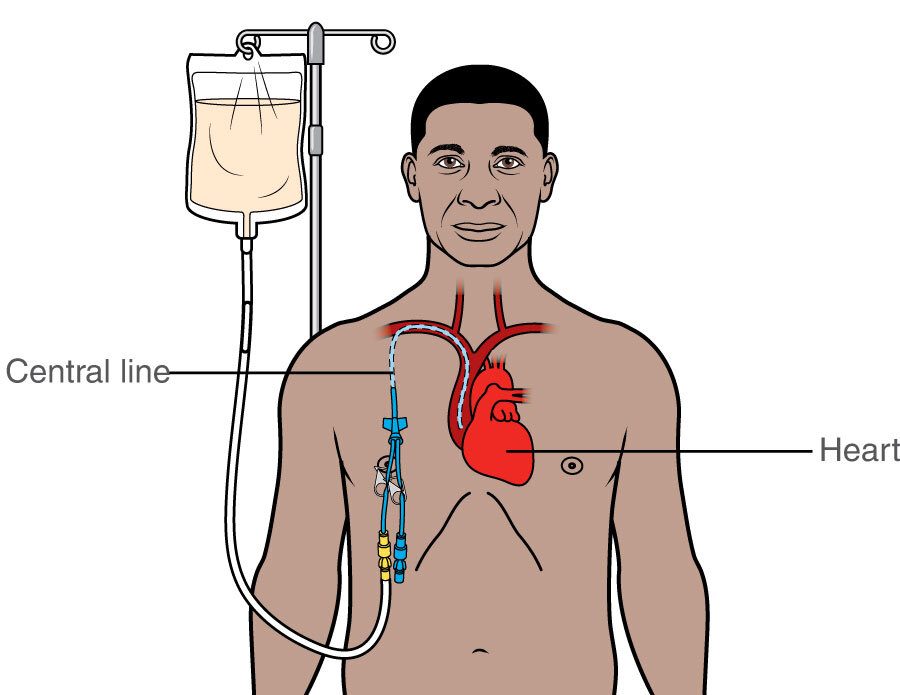
Parenteral nutrition, often called total parenteral nutrition, is the medical term for infusing a specialized form of food through a vein (intravenously). The goal of the treatment is to correct or prevent malnutrition.
Parenteral nutrition provides liquid nutrients, including carbohydrates, proteins, fats, vitamins, minerals and electrolytes. Some people use parenteral nutrition to supplement feeding through a tube placed into the stomach or small bowel (enteral nutrition), and others use it by itself. People whose digestive systems either can’t absorb or can’t tolerate adequate food eaten by mouth use parenteral nutrition. When used outside the hospital, intravenous feeding is called home parenteral nutrition. Using home parenteral nutrition may be necessary for weeks or months, or in some cases for life.
Why It’s Done ? You may need parenteral nutrition for one of the following reasons:
Cancer of the digestive tract may cause an obstruction of the bowels, preventing adequate food intake. Cancer treatment, such as chemotherapy, may cause your body to poorly absorb nutrients.
Crohn’s disease is an inflammatory disease of the bowel that may cause pain, bowel narrowing and other symptoms that affect food intake and its digestion and absorption.
In this condition, which can be present at birth or occur as the result of surgery that has removed a significant amount of small intestine, you don’t have enough bowel to absorb enough of the nutrients you eat.
This may cause difficulties resulting from reduced blood flow to the bowel.
This causes food you eat to have trouble moving through your intestines, resulting in a variety of symptoms that prevent enough food intake. Abnormal bowel function can occur due to surgical adhesion or abnormalities in bowel motility. These may be caused by radiation enteritis, neurological disorders and many other conditions.
